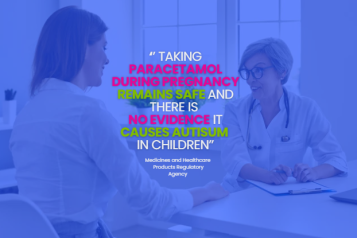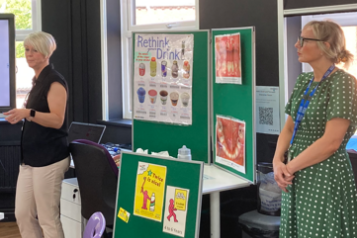Help raising a concern or making a complaint - health services

Should I make a complaint?
If your complaint is an immediate or high-risk situation, such as you or your loved one are not receiving enough care, there is a risk to your safety, or you have suffered from discrimination, you should report the problem immediately.
You may decide not to make a complaint because you are worried that it might make your situation worse. You may worry that if you speak to the services directly, you could annoy them, and the standard of care you receive might get worse.
You are not alone – a lot of people don’t make a complaint because of these fears.
But it is important that where services aren’t working as planned NHS providers learn from complaints, communicate those lessons to people, and improve.
Where should I start?
For many people, the first step is taking some time to think about what went wrong, what the service could have done better, and what you'd like to happen as a result. This will help you to decide whether you would like to raise a concern (where attempts will be made to resolve your issue informally) or whether you would like to make a formal complaint.
The outcome you want could include:
- Getting access to the care you need
- Improving the service, so other people don’t have the same experience you had
- Receiving an explanation of what went wrong and an apology.
- Getting someone disciplined or prosecuted.
- Getting compensation
Timeframe
You normally have 12 months after an incident (or after becoming aware of an incident) to make a complaint.
Preparing to make a complaint
It can help to put together any documents relating to the problem so that you are able to talk about these during the complaints process. This could include accessing your medical records. You may also want to gather other information to help you prepare for your complaint - such as reading the complaints policy from the organisation to help you know what to expect.
Further guidance on making a complaint can also be found on the NHS England website.
Who should I contact?
Once you've decided to raise a concern or make a formal complaint, you need to know who to contact. This will depend on who delivers or commission (pays for) the NHS service.
If your care was provided by Rotherham hospital
The Rotherham NHS Foundation Trust
your.experience@nhs.net (Patient Advice and Liaison Service - PALS)
01709 424461 (Patient Advice and Liaison Service - open Monday to Friday, 9am to 5pm)
Patient Advice and Liaison Service office, C Level, Main entrance (Open Monday to Friday, 10am to 4pm)
If your care was provided by Mental Health services (RDaSH/CAMHS)
Rotherham, Doncaster and South Humber NHS Foundation Trust
rdash.pals.email@nhs.net (Patient Advice and Liaison Service - PALS)
0800 0154 334 (Patient Advice and Liaison Service - open Monday to Friday, 9am to 5pm)
If your care was provided by a GP, optician, dentist, or pharmacist
You have two choices (you cannot make a complaint to both)
Contact the Practice Manager of the service by telephone, email, or post
Or
Complain to South Yorkshire Integrated Care Board ( SYICB)
syicb-sheffield.icbcomplaints@nhs.net
0333 041 0021 (South Yorkshire Integrated Care Board)
If you wish to raise a formal complaint, you must state this.
What next?
The service you have complained to should always acknowledge your complaint and respond with how they intend to investigate.
The organisation should then investigate your complaint and resolve the problem quickly and efficiently. They should also keep you fully informed about how the investigation is going.
You may be invited to a meeting to discuss your complaint or offer mediation or other help to resolve the complaint. It’s good practice to allow you to be accompanied to any meeting – so don’t feel like you need to go alone.
Once they have investigated your complaint, they must then respond to you. Their response should:
- Explain how the complaint has been investigated
- Explain the conclusions they have reached, including any action they intend to take to resolve the situation
- Give details of how to escalate your complaint if you are not satisfied with the response.
Hopefully the complaint will be resolved in a way that you're happy with.
If you are not happy with the way the complaint is resolved, then you have the right to escalate it. You can do this via the Parliamentary and Health Service Ombudsman - they will review the complaint independently and make a final decision.
If you need extra support making a complaint
Absolute Advocacy (Cloverleaf) provides the Independent Advocacy Service for Rotherham. They are there to support you to raise your concerns or make a complaint about NHS or NHS funded services.
They can help you:
- Understand the complaints process
- Support you to make a complaint in writing
- Update you with the progress of your complaint
- Attend complaint meetings with you
- Help you understand the outcome of your complaint
- Help you escalate your complaint to the Ombudsman if you are not happy with the result
Their service is free and confidential.


